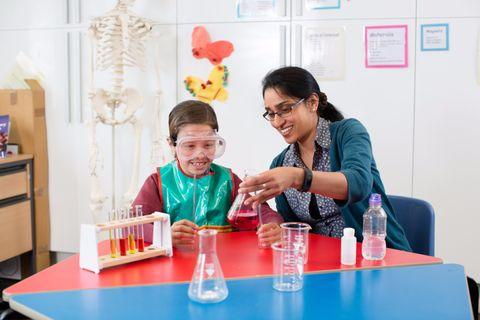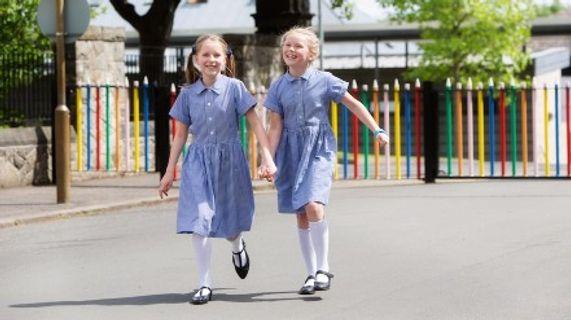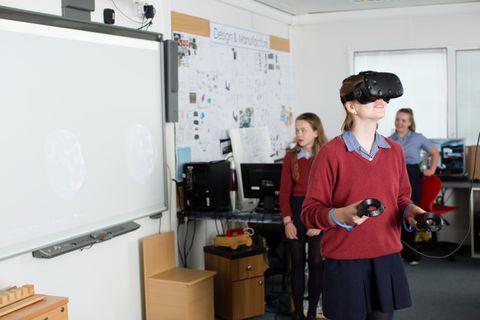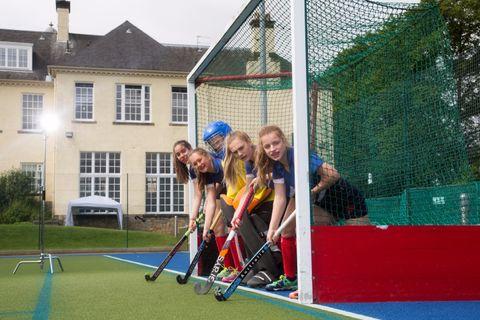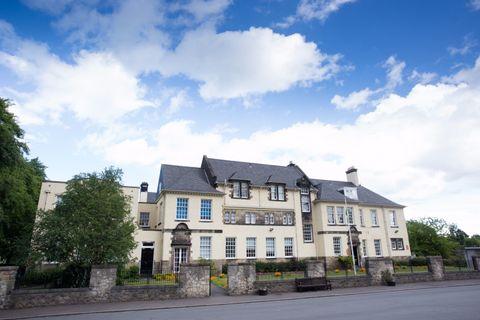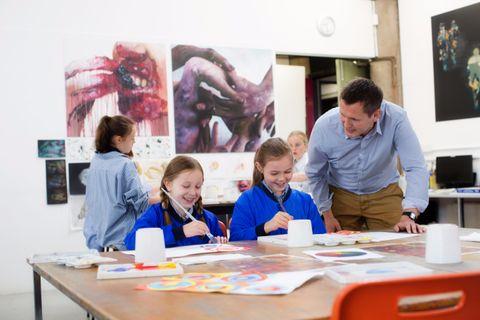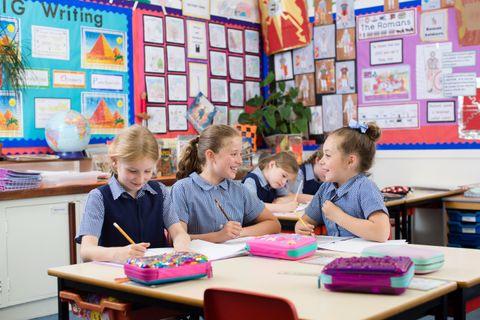Early Years Practitioner
St George's, Edinburgh
Edinburgh, City of
- £21,787 - £27,267 per year
- Quick apply
- Expired
- Salary:
- Early Years Practitioner
- Job type:
- Full Time, Fixed Term
- Start date:
- February 2023
- Apply by:
- 16 December 2022
Job overview
Early Years Practitioner
Duties and Responsibilities
To the Children:
- To create a supportive and caring ethos in all aspects of the Nursery environment in which individual children are encouraged and supported to develop self-esteem, self-confidence and respect for others;
- To provide an appropriately challenging and stimulating educational environment with the child at the centre, where individual children are encouraged to reach their full potential;
- To be actively involved in a programme of development with the children in relation to their self-help skills, toilet training, toileting, dressing skills, personal care and eating skills and, where children have not yet developed these skills, to provide care and support for them;
- To encourage children’s language and communication development and be aware of ways to stimulate language and communication through play, books, stories, alternative communication systems and by personal interaction;
- Where appropriate, to act as a key person for a group of children by taking the lead responsibility for them, ensuring they are comfortable and secure in their surroundings and are afforded every opportunity to acquire and develop skills appropriate to their age and ability;
- To support the development of individual skills, utilising interests and expertise in music, drama, movement, arts and crafts, literature and environmental studies, or other skills and interests, as appropriate, and to use these to assist in the delivery of the curriculum;
- To encourage children’s development in other curricular areas where relevant and work in a support capacity with specialist teachers from other areas of the school;
- To encourage children to participate in the preparation of snacks and simple meals and, when involved in supervising mealtimes, to be aware of the emotional, personal and social developmental opportunities this process presents;
- To support children in using ICT as part of their learning. To use ICT where relevant in preparing resources, providing formal and informal reporting on children’s progress using our electronic and online systems, supporting children’s skill development and other work-related activity.
To the Junior School and Nursery Department:
- To take part in departmental meetings and in-service days as required by the Head through the Head of Junior School and Nursery;
- To attend open mornings/afternoons/play mornings as required by the Head through the Head of Junior School and Nursery in order to provide support to colleagues, families and children with regards to transitions and the positive promotion of the Nursery in general;
- In addition to term times, to work an agreed approximate 3 week period in Holiday Club (Oct/Feb half-terms, Easter and Summer) on a rotational basis as the School views it as an extension of providing wrap-around Nursery and Junior School care for children and families. To be available during these periods as required and to contribute to the smooth operation of Holiday Club. Any additional hours worked during Holiday Club above contractual hours will be reimbursed monetarily;
- On an individual or team basis to be aware of and act on any additional support needs (for example, learning, dietary, medical, emotional and/or behavioural) and provide appropriate care and support through implementation of individual care and learning plans, with the guidance of the Head and Head of Junior School and Nursery, within the policy guidelines of the School (e.g. Behaviour Management);
- To be committed to working in an environment which promotes social inclusion and be aware of the particular requirements of children with additional needs;
- To promote equality and be aware of diversity issues ensuring that every child experiences a supportive and caring ethos;
- To work in a collegiate manner, respectfully communicating and showing support to other members of the Nursery team. To be prepared to participate in agreed rotational duties as required by the Head of Junior School and Nursery to ensure the smooth operation of the Nursery;
- To communicate responsibly and promptly with the Junior School Leadership Team through the Head of Junior School and Nursery if matters arise concerning a child’s welfare or development;
- To be responsible as an individual or as part of a team for setting up equipment and working with children in both indoor and outdoor play areas, to lay out and clear playrooms and outdoor play areas. To contribute to the care and maintenance of equipment and apparatus including visual and aural aids;
- To participate in duties and activities the majority of which will be undertaken in the Nursery setting (for example playrooms, Junior School and outdoor areas). Some planned activities may be undertaken elsewhere in the community;
- To contribute to the planning and be responsible for groups of children on organised outings and to escort children on bus runs in accordance with the Health and Safety Guidelines of the School including the completion of any necessary documentation;
- To adhere to the advice outlined by the Care Inspectorate and followed by the Nursery with regards to ratios of children and staff, both when in the Nursery environment and on external trips/outings;
- To assist in securing a safe, secure and hygienic environment for children;
- To attend to the immediate/basic need for comfort and care of children when injured/ill, completing appropriate record keeping in accordance with Nursery and School policy;
- Where appropriate, to provide basic good practice advice and support to volunteers, learning assistants and students;
- To provide visiting specialists with information for their records;
- To prepare and plan in advance for a weekly allocation of non-contact time, which is in addition to non-contact times before and after the main nursery day. To understand that this additional non-contact time will only be afforded when the nursery is operating within its ratios;
- To be involved in the purchasing, utilising, maintaining and cataloguing of appropriate resources associated with the delivery of the curriculum through, for example, making recommendations on required purchases based on judgements of children’s needs.
To the Parents:
- To seek to build relationships with parents to promote partnership;
- To liaise and work with parents, other members of the School team, other establishments and agencies in relation to the delivery of the curriculum and the welfare and development of the children;
- In doing so, to be sensitive to circumstances at home and in the family by working in partnership with parents and carers towards the care and education of their children;
- To be prepared, on occasion, to communicate in a lead role with parents and include them in the development of their child.
Attached documents
About St George's, Edinburgh
- St George's, Edinburgh
- Garscube Terrace, Murrayfield, Edinburgh
- Midlothian
- EH12 6BG
- United Kingdom
St George’s School for Girls is an independent, all-through school in Edinburgh. It caters for approximately 800 girls aged between two and eighteen.
Founded in 1888 by pioneers of women’s education, St George’s is the largest all-girls school in Scotland and the only all-through girls’ school in Edinburgh. The school was named the top Scottish Independent School for Advanced Higher results by the Best-Schools website in 2014 and 2013.
Vision and values
The main vision of St George’s School for Girls is to produce women of independent mind who are equipped with the academic and life skills to succeed. The ethos is based on four values: truth, honour, freedom and courtesy. Students and staff alike are encouraged to be respectful towards one another. Pupils learn in an environment free of gender stereotypes.
St George’s nursery curriculum is based on child-led activities, involving problem-solving, creativity and role play. For the older students, the curriculum is based on GCSE and Scottish Higher and Advanced Higher examinations in eight areas: languages, maths, social studies, sciences, health and well-being, religious and moral education, expressive arts and technologies. The school also emphasises the importance of outdoor learning and physical activity as a supplement to academic learning.
Education Scotland report
“The school’s systematic approaches to tracking and monitoring children’s and young people’s performance provides staff with very helpful information about each child’s progress and development. The headteacher has a strong and clear vision for the school as a place where children and young people receive the best education to develop their ambitions and fulfil their aspirations.”
Please note that you are wholly responsible for fact checking in respect of the information provided by schools. Please also check for the latest visa and work permit requirements that may apply. Tes is not responsible for the content of advertisements or the policies adopted by advertising schools. Tes asks that all schools follow Tes' Fair Recruitment Policy.


